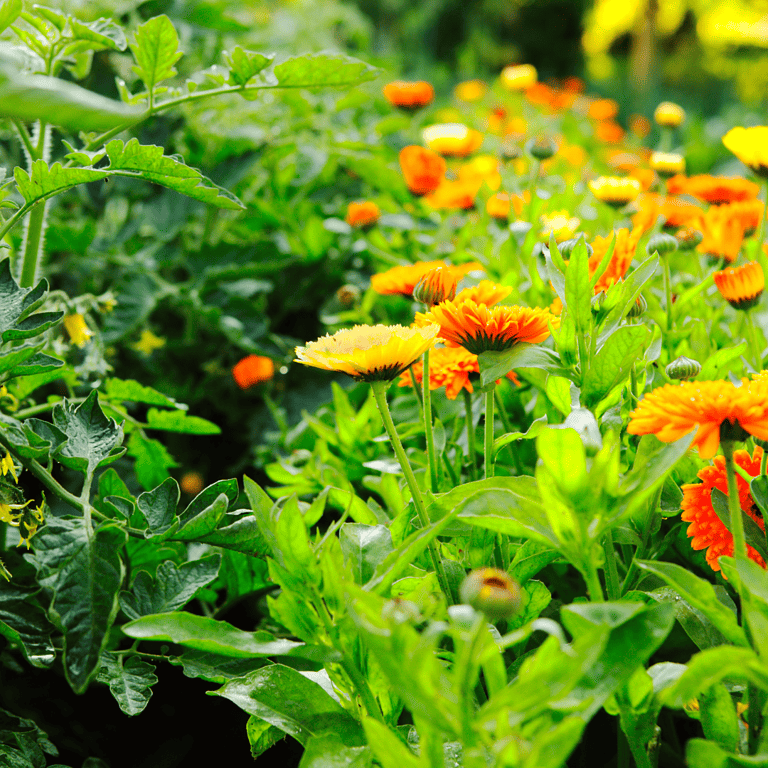DEAR VALUED CUSTOMER,

As summer arrives, so does the joy of tending to your garden. However, it also brings the return of garden pests that can threaten your precious plants. While it may be tempting to reach for chemical pesticides, there are natural and eco-friendly methods to protect your garden from pests and maintain a healthy, thriving garden ecosystem. In this blog post, we'll explore some effective ways to protect your plants naturally.
Tips:
1. Companion Planting
Companion planting involves strategically placing plants next to each other to promote growth or deter pests. Some plants naturally repel garden pests while attracting beneficial insects. Here are a few examples:
Marigolds: These bright flowers emit a scent that repels aphids, nematodes, and other harmful insects.
Basil: Planting basil near tomatoes can deter flies and mosquitoes, while enhancing tomato growth.
Nasturtiums: These colorful flowers can attract aphids away from your other plants.
2. Neem Oil
Neem oil is derived from the neem tree and is an effective natural pesticide. It disrupts the feeding and reproduction of many garden pests, including aphids, mites, and whiteflies. Dilute neem oil with water and apply it to your plants' leaves, stems, and soil to deter and control infestations.
3. Homemade Insecticidal Soap
You can make your own insecticidal soap by mixing mild dish soap with water. This solution can be sprayed onto plant leaves to suffocate soft-bodied pests like aphids, mealybugs, and spider mites. Be sure to rinse the plants with water after a few hours to avoid soap buildup.
4. Diatomaceous Earth (DE)
Diatomaceous Earth is a fine powder made from the fossilized remains of diatoms. It's safe for humans and pets but deadly for many garden pests. Sprinkle DE around the base of your plants to create a barrier that will deter crawling insects like slugs and snails.
5. Beneficial Insects
Encourage natural predators of garden pests by providing habitats for beneficial insects such as ladybugs, lacewings, and predatory wasps. These insects can help keep pest populations in check. You can purchase beneficial insects or create inviting environments with plants that attract them, like dill or fennel.
Tips Continued:
6. Garlic and Chili Pepper Spray
Make a homemade pest-repelling spray by blending garlic and chili peppers with water. Strain the mixture and spray it onto your plants. The strong odor and spicy taste can deter pests like deer, rabbits, and some insects.
7. Mulch
Mulching not only helps with moisture retention and weed control but also acts as a physical barrier against certain pests. For example, mulch can deter slugs and snails from reaching your plants.
8. Regular Inspections
Frequent inspections of your garden can help you spot pest problems early. If you notice any signs of damage or infestation, take action promptly. Handpick larger pests like caterpillars or beetles and dispose of them.
9. Crop Rotation
Rotate your crops from year to year to disrupt the life cycles of pests that may have overwintered in the soil. Different crops have different vulnerabilities to pests, so changing plant locations can help break the cycle.
10. Healthy Soil and Strong Plants
Finally, maintaining healthy soil with proper nutrients and good drainage can help your plants resist pests. Strong, healthy plants are less attractive to pests than weak, stressed ones.
In conclusion, protecting your garden from pests naturally not only safeguards your plants but also preserves the environment and the health of your family and pets. By using these eco-friendly methods, you can enjoy a thriving garden throughout the summer while minimizing harm to the ecosystem. So, roll up your sleeves, embrace these natural solutions, and watch your garden flourish.

